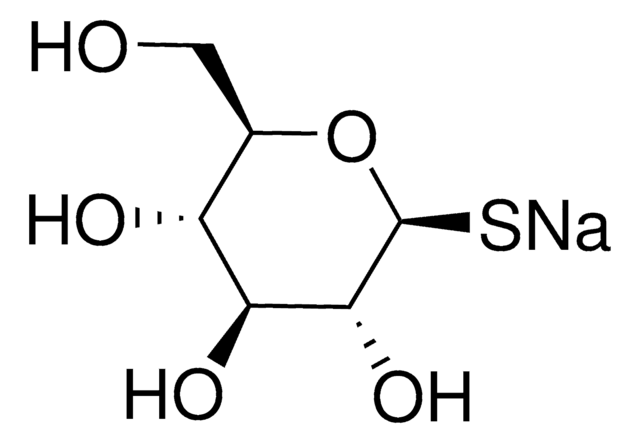31630
Silver nitrate
puriss. p.a., ACS reagent, reag. ISO, reag. Ph. Eur., ≥99.8%
Synonym(s):
Nitric acid silver(I) salt
About This Item
Recommended Products
grade
ACS reagent
puriss. p.a.
Agency
USP/NF
reag. ISO
reag. Ph. Eur.
vapor density
5.8 (vs air)
Assay
≥99.8%
form
solid
impurities
≤0.01% subst. not precipitated by HCl (as SO4)
mp
212 °C (dec.) (lit.)
anion traces
chloride (Cl-): ≤5 mg/kg
nitrite (NO2-): ≤500 mg/kg
sulfate (SO42-): ≤20 mg/kg
cation traces
Cd: ≤1 mg/kg
Cu: ≤2 mg/kg
Fe: ≤2 mg/kg
Mn: ≤5 mg/kg
Pb: ≤10 mg/kg
Zn: ≤1 mg/kg
SMILES string
[O-][N+]([O-])=O.[Ag+]
InChI
1S/Ag.NO3/c;2-1(3)4/q+1;-1
InChI key
SQGYOTSLMSWVJD-UHFFFAOYSA-N
Looking for similar products? Visit Product Comparison Guide
General description
Application
Disclaimer
Signal Word
Danger
Hazard Statements
Precautionary Statements
Hazard Classifications
Aquatic Acute 1 - Aquatic Chronic 1 - Eye Dam. 1 - Met. Corr. 1 - Ox. Sol. 2 - Repr. 1B - Skin Corr. 1A
Storage Class Code
5.1B - Oxidizing hazardous materials
WGK
WGK 3
Flash Point(F)
Not applicable
Flash Point(C)
Not applicable
Choose from one of the most recent versions:
Already Own This Product?
Find documentation for the products that you have recently purchased in the Document Library.
Customers Also Viewed
Our team of scientists has experience in all areas of research including Life Science, Material Science, Chemical Synthesis, Chromatography, Analytical and many others.
Contact Technical Service







